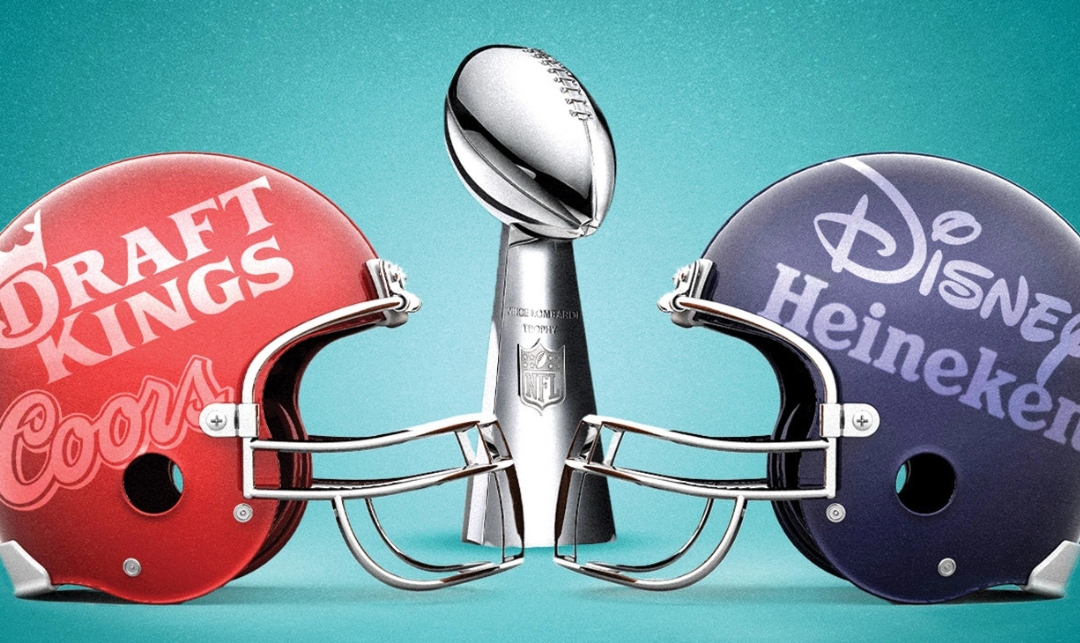American culture has no event with greater reach or resonance than the Super Bowl. Morning television and the nightly news, MTV, the Oscars and Emmys, and major sitcoms do not connect us all like they used to. We are a country increasingly divided into smaller and smaller tribes, siloed by interests, ideologies, and endless entertainment options.
That leaves Super Bowl ads as one of the best ways to take the temperature of the general public’s frame of mind. Advertisers – seeking to engage and inspire the largest possible audience – are transmitting the message that they believe is most ripe for the moment.
I have watched the big game over the last few years through the lens of cause marketing – examining the spots that don’t just sell the virtues of a product, but also promote a brand’s positive impact in the world. We have seen a dramatic shift toward this type of content generally, and last year’s Super Bowl was no exception, with many brands eagerly incorporating impact.
This year, I had expected a double down on this type of work. I was wrong. Viewers got plenty of lighthearted humor, nostalgia, star power, and silly songs. The world is still in dire need of repair. But on Sunday, the nation just wasn’t in the mood to hear about it.
That said, there were still a number of ads that appealed to our better angels. Below we share our take on what those spots got right, and what could be fine tuned (from an impact perspective) to take them from good to great.
We rated ads that engaged in “cause marketing” using the following rubric:
- Fit: Does the cause make sense for the brand? Score: /3
- Partnership: Does the brand have a substantiated partnership connected to this effort? Score: /2
- Activation: Does the ad inform and activate viewers? Do people care more about the cause because of the ad? Score: /2
- Long-term: Does the brand have a long-term relationship to the cause? Will this relationship further the cause? Score: /3

Jon Hamm in Hellmann’s “Who’s in the Fridge” ad
CLOSE, BUT JUST SHY OF A FIRST DOWN – HELLMANN’S: WHO’S IN THE FRIDGE?
Hellmann’s has returned to continue its #MakeTasteNotWaste campaign, meant to inspire people to waste less food.
In the ad, Jon Hamm and Brie Larson find themselves stuck in a fridge filled with leftovers, and… a giant jar of Hellmann’s mayo. Pete Davidson appears and cooks himself a ham, brie, and mayo panini (get it?!). The hashtag notwithstanding, the impact of food waste is never called out directly in the ad, or on the related link, which instead leads to a page with mayo-centric recipes but no mention of food waste. There is plenty to say on the topic — namely that food waste is terrible for the planet, causing harmful greenhouse gasses, and 38 million people in the US alone face hunger.
Last year, we wrote that a similar Hellmann’s ad – while laddering up to an important cause and making sense for a food brand with a large platform – didn’t make the grade. “If the Hellmann’s team wishes to really lead – and quantify the value of their effort – they have a long way to go. We hope they stick with it; it’s too important an opportunity to waste.” This year – we are essentially saying “ditto”.
One improvement in 2023: Hellmann’s is bringing impact beyond the Super Bowl with a cross-country campaign featuring its iconic yellow truck. For every person who spots the vehicle and shares a photo on social media, Hellmann’s will donate meals to Feeding America. While we appreciate the activation (truly!), it feels more like a footnote when it could have been wrapped into the thesis.
Social good effort: Food waste
Score:
- Fit: 2/3
- Partnership: 1/2
- Activation: 1/2
- Long-term: 1/3
- TOTAL: 5/10

A still from Publicis Groupe’s “Working With Cancer” ad
FIELD GOAL: PUBLICIS GROUPE (WORKING WITH CANCER)
Publicis Groupe is the first holding company to run a Super Bowl ad – and we love that they’ve opted to make this debut through an incredibly moving ad promoting their #WorkingWithCancer coalition.
A group of leaders from major companies, healthcare providers, and NPOs across the globe have joined together, pledging to erase stigma in the workplace for those battling cancer. Founding partners include brands like Google, LVMH, McDonald’s, Toyota, Walmart, Citi, and many more.
The ad’s goal is to share the harrowing experiences of people with cancer in the workplace to inspire other companies to get involved with the pledge. The related website includes stats, resources, support, and data for anyone interested in the movement, including a downloadable pledge to share with “key leaders and decision-makers so they can make your workplace more supportive and recovery-forward.”
While this ad only aired regionally – we thought it was worth a mention.
Social good effort: Cancer support
Score:
- Fit: 2/3
- Partnership: 2/2
- Activation: 2/2
- Long-term: 0/3
- TOTAL: 6/10
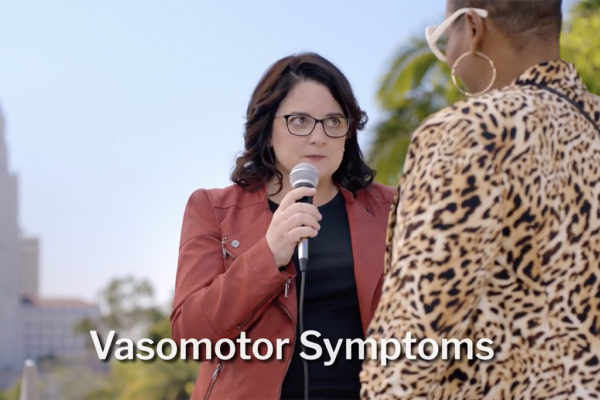
A still from Astella’s “One Burning Question” ad
FIELD GOAL: ASTELLAS (ONE BURNING QUESTION)
Japanese pharma company Astellas aired its first Super Bowl spot as part of a larger campaign to raise awareness about menopause. Despite being relatively common (more than 1 million women experience menopause each year, including many who watch the Super Bowl), not much is understood about the health effects of menopause.
The ad centers on the technical term vasomotor symptoms (VMS) to cleverly draw attention to a conversation around menopause. Actress Carmella Riley plays a reporter asking women on the street “one burning question: What is VMS?” The ad then directs viewers to WhatsVMS.com, which offers educational materials and resources. While we have no POV on the efficacy of this medical advice, we thought it was gutsy to center women’s health in the first Super Bowl ad of the night.
Social good effort: Menopausal awareness
Score:
- Fit: 3/3
- Partnership: 0/2
- Activation: 2/2
- Long-term: 1/3
- TOTAL: 6/10
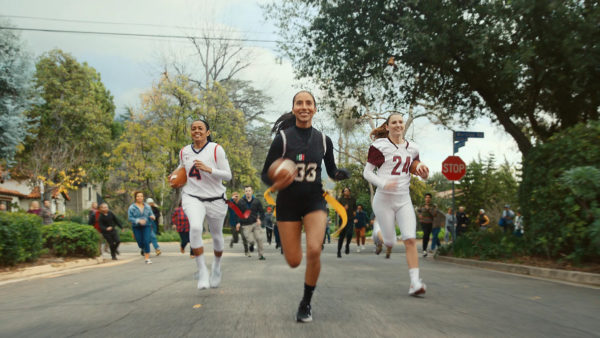
A still from NFL’s “Run With It” ad
TOUCHDOWN: NFL (RUN WITH IT)
One of our favorite spots of the night – and one that likely marks the start of a new era for the NFL was “Run With It,” which follows Mexican flag football champion quarterback Diana Flores as she expertly dives and dodges countless people (reporters, famous NFL players,, YouTube personalities, her mom (!)) all trying to steal her flags. Tennis legend and women’s-rights advocate Billie Jean King makes a cameo, blocking for Flores as she runs by.
The ad closes with Flores – flags still securely in place – sprinting down a leafy street, all smiles, beside Vanita Krouch (QB of the U.S. women’s flag team) and Bella Rasmussen (first female football player to receive a name/image/likeness deal in high school). Text appears: “To the women pushing football forward – we can’t wait to see where you take this game.” That this ad came from the NFL, was unique and powerful.
Our only question – and it truly was a great spot that unequivocally spoke to advancing women in sport – was, beyond the ad, what is the NFL doing and what organizations are they supporting to ensure this advancement?
Social good effort: Women in sports
Score:
- Fit: 3/3
- Partnership: 0/2
- Activation: 2/2
- Long-term: 3/3
- TOTAL: 8/10
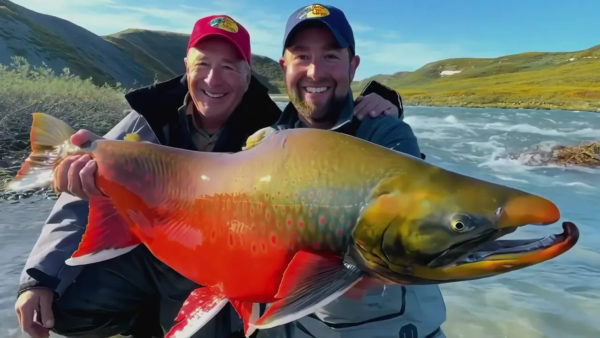
A still from the Cabelas + Bass Pro Shops ad
TOUCHDOWN: CABELAS + BASS PRO SHOPS (CONSERVATION CLUB)
Bass Pro Shops’s ad featured a world record size Arctic Char, caught and released by Johnny Morris, legendary angler and noted conservationist (and not to worry – “the incredibly beautiful fish was returned to the majestic river above the Arctic Circle at the mouth of the Arctic Ocean.”)
The ad celebrates conservation, hoping to inspire viewers to connect with nature. The spot ends with an invitation for viewers to “join the club.” The associated site touts a clear mission backed by strategy, partnerships, advocacy work, and stories – all things we love to see.
It is another regional ad, but we thought it worth a share.
Social good effort: Nature Conservation
Score:
- Fit: 3/3
- Partnership: 2/2
- Activation: 2/2
- Long-term: 2/3
- TOTAL: 9/10

Will Ferrell drives a GMC Sierra EV Denali as he is chased by zombies from Netflix’s Army of the Dead
ELECTRIC VEHICLES ADS ARE STILL SCRIMAGING
Historically, we’ve measured ads by brand. Interestingly, for the night’s EV spots, we found they all scored pretty much the same, with each winking at the importance of going electric, but none explicitly tackling climate-change or engaging more broadly in sustainability work.
GENERAL MOTORS: GIVING EVS MORE SCREEN TIME
General Motors (which had a strong sustainability spot last year), is back with a much lighter take. We find Will Ferrell zipping from set to set, extolling the virtues of EV product placement across various genres (zombie apocalypse; rom com; 80’s teen sci-fi; etc.).
The message is to “give EVs the stage they deserve” – the subtext being that we must normalize the concept of driving electric vehicles, which will encourage more people to adopt them, which supports the fight against climate change… This message isn’t explicitly spelled out, and requires a lot of connect-the-dots from viewers. All said, while cute, we thought GM did a more effective job last year with a spot that called out climate change directly.
Still, it was the strongest of the three, from an impact perspective.
JEEP: ELECTRIC BOOGIE
Jeep brings us to the great outdoors in their EV, with happy people getting to check out happy nature. Again, the subtext here is that the EV supports a better environment for our planet, and all of the amazing creatures who call it home … but the viewer is asked to do the dot connection.
RAM TRUCKS: PREMATURE ELECTRIFICATION
A little crass, but probably the funniest of these three spots – this ad tackles the concern that drivers may have about Electric Vehicles losing their charge before completing the trip through the foil of couples complaining about their lovers, ahem … trip completion. Ram then touts its mileage capacity. The ad definitely gets your attention, and may push sales for EVs, but – again – doesn’t really get into “the why” behind this product.
Social good effort: Climate change
Score:
- Fit: 3/3
- Partnership: 0/2
- Activation: 1/2
- Long-term: 2/3
- TOTAL: 6/10
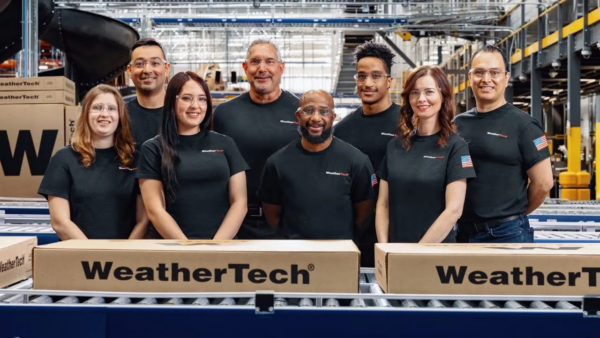
A still from the WeatherTech’s “We Win Together” ad
IMPACT…KIND OF
There were a handful of other ads that had our ears perking up … but when we double clicked, there wasn’t much there, there. Here’s our quick take on how they could have leveled up.
WEATHERTECH: WE ALL WIN
WeatherTech’s 30 second spot highlighted the difficulties it faced when it began the process of building factories, manufacturing products, and hiring workers in the US, but are happy to have persevered “…because when you buy something made in America, we all win.”
While we loved the sentiment, beyond the tagline, we weren’t sure where they wanted to take the impact ball. It would have been much clearer to include a call to action or take viewers to other collateral that helped shed light onto their processes and successes, which could be a resource for other companies looking to do the same.
U.S. BANK: MORE BRANCHES AND ATMS
On a similar note, we liked the U.S. Bank ad that featured – and subtly promoted the importance of – small businesses, but – again – felt that it missed the impact mark. To take this spot from rhetoric to action, the viewer (if inspired to learn more) should be easily able to understand how – beyond offering loans at standard market rates – the Bank is going above and beyond to benefit small businesses locally.
THE FUMBLES
Finally, there were many missed opportunities this year – spots that were perfectly positioned to incorporate impact (or which didn’t deliver on their promises to do so). Here are some of the ads that left us wanting:
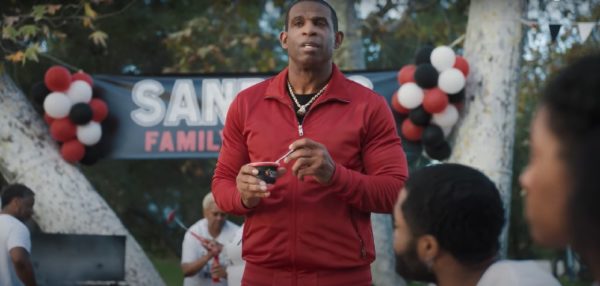
A still from Oikos’ Super Bowl 2023 ad
Dexcom, the glucose monitoring brand, ran a 30-second spot with Nick Jonas to introduce its G7 device, which received FDA clearance in December. We wish Dexcom had taken a leaf out of Astellas’ book (another pharma company with a Super Bowl spot), and offered education or supportive resources around diabetes, instead of just touting its product.
In the weeks leading up to the Super Bowl, many companies offer press releases and teasers around their full ad campaigns. A few of these made it onto our impact radar – but once we saw the spots, we were left a bit confused.
Oikos looked to promote its Greek yogurts for their health benefits, promising to “strengthen access to nutrition and fitness resources that will help fuel the next generation of strong, healthy young adults… increasing awareness and co-creating sustainable solutions with key partners to address inequities in the space.” This sounded great – a cause nicely aligned with the brand, incorporating partnerships, etc. – but the ad left us scratching our heads.
Bush’s Beans: A press release explained that beans “are an affordable plant-based protein source that have less impact on water sources compared to animal protein and come in infinitely recyclable cans.” This sounded promising, so we were disappointed to see that this line of thought was omitted entirely from the ad itself.
ABInBev’s Busch Light: This one was rough. Despite promises to use this slot to promote “essential survival skills” to nature-loving fans, while offering “support for the brand’s diversity and inclusion efforts, both in front of and behind the camera,” Busch Light instead appeared to poke fun at Sarah McLachlan and others trying to make the world a better place, and if there was a diversity and inclusion note – we totally missed it.
Sports Betting: Last year’s Super Bowl saw numerous crypto ads. This year, the trend was sports betting. We were surprised by how much prize money was offered to entice viewers to engage in gambling on different platforms (NB: we aren’t weighing in on the morality here). Molson Coors offered a $500,000 cash prize; Fan Duel’s “Kick of Destiny” gave out $10 million in free bets; DraftKings gave a $200 bonus to any user who wagered $5. There was a lot of cash deployed, and we were surprised that none of the brands thought to link any of these dollars to benefit nonprofits or individuals in need.
Emily Kane Miller is the founder and CEO of Ethos Giving.







































